- Home
- Sophie Kinsella
I Owe You One: A Novel
I Owe You One: A Novel Read online
I Owe You One is a work of fiction. Names, characters, places, and incidents are the products of the author’s imagination or are used fictitiously. Any resemblance to actual events, locales, or persons, living or dead, is entirely coincidental.
Copyright © 2019 by Madhen Media Ltd.
All rights reserved.
Published in the United States by The Dial Press, an imprint of Random House, a division of Penguin Random House LLC, New York.
THE DIAL PRESS and the HOUSE colophon are registered trademarks of Penguin Random House LLC.
Published in the United Kingdom by Bantam Press, an imprint of Transworld Publishers, a Penguin Random House UK company.
LIBRARY OF CONGRESS CATALOGING-IN- PUBLICATION DATA
Names: Kinsella, Sophie, author.
Title: I owe you one : a novel / Sophie Kinsella.
Description: New York : The Dial Press, [2019]
Identifiers: LCCN 2018038400 | ISBN 9781524799014 (hardback) | ISBN 9781524799021 (ebook) | ISBN 9781984854698 (international)
Subjects: | BISAC: FICTION / Contemporary Women.
Classification: LCC PR6073.I246 I2 2019 | DDC 823/.914—dc23
LC record available at https://lccn.loc.gov/2018038400
Ebook ISBN 9781524799021
randomhousebooks.com
Title-page image adapted from iStockphoto.com images
Book design by Dana Leigh Blanchette, adapted for ebook
Cover design: Eileen Carey
Cover illustrations: © Jenny Kroik (city background); © Richard Ogle (woman)
v5.4
ep
Contents
Cover
Title Page
Copyright
Chapter One
Chapter Two
Chapter Three
Chapter Four
Chapter Five
Chapter Six
Chapter Seven
Chapter Eight
Chapter Nine
Chapter Ten
Chapter Eleven
Chapter Twelve
Chapter Thirteen
Chapter Fourteen
Chapter Fifteen
Chapter Sixteen
Chapter Seventeen
Chapter Eighteen
Chapter Nineteen
Chapter Twenty
Chapter Twenty-one
Chapter Twenty-two
Chapter Twenty-three
Chapter Twenty-four
Chapter Twenty-five
Chapter Twenty-six
Chapter Twenty-seven
Dedication
Acknowledgments
By Sophie Kinsella
About the Author
Excerpt from Surprise Me
One
The trouble with me is, I can’t let things go. They bug me. I see problems and I want to fix them, right here, right now. My nickname isn’t Fixie for nothing.
I mean, this can be a good thing. For example, at my best friend Hannah’s wedding, I got to the reception and instantly saw that only half the tables had flowers. I ran around sorting it before the rest of the guests arrived, and in her speech, Hannah thanked me for dealing with “Flowergate.” So that was OK.
On the other hand, there was the time I brushed a piece of fluff off the leg of a woman sitting next to me by the pool at a spa day. I was just trying to be helpful. Only it turned out it wasn’t a piece of fluff; it was a pubic hair growing halfway down her thigh. And then I made things worse by saying, “Sorry! I thought that was a piece of fluff,” and she went kind of purple, and two nearby women turned to look …
I shouldn’t have said anything. I see that now.
Anyway. So this is my quirk. This is my flaw. Things bug me. And right now the thing that’s bugging me is a Coke can. It’s been left on the top shelf of the leisure section of our shop, in front of a chessboard propped up for display. Not only that, the chessboard is covered with a brown stain. Obviously someone’s opened the can or dumped it down too hard and it’s splattered everywhere and they haven’t cleared it up. Who?
As I look around the shop with narrowed eyes, I fully suspect Greg, our senior assistant. Greg drinks some kind of beverage all day long. If he’s not clutching a can, it’s noxious filter coffee in an insulated cup decorated with camouflage and webbing, as though he’s in the army, not working in a household store in Acton. He’s always leaving it about the place, or even thrusting it at customers and saying, “Hold this a mo,” while he gets a saucepan down off the display for them. I’ve told him not to.
Anyway. Not the time for recriminations. Whoever dumped that Coke can (Greg, definitely Greg), it’s caused a nasty stain, just when our important visitors are about to arrive.
And, yes, I know it’s on a high shelf. I know it’s not obvious. I know most people would shrug it off. They’d say: “It’s not a big deal. Let’s get some perspective.”
I’ve never been great at perspective.
I’m trying hard not to look at it but to focus instead on the rest of the shop, which looks gleamingly clean. A little shambolic, maybe, but then, that’s the style of our all-purpose family shop. (Family-owned since 1985, it says on our window.) We stock a lot of different items, from knives to aprons to candlesticks, and they all need to go somewhere.
I suddenly catch sight of an old man in a mac in the kitchen section. He’s reaching with a shaking hand for a plain white mug, and I hurry over to get it for him.
“Here you are,” I say with a friendly smile. “I can take that to the till for you. Do you need any more mugs? Or can I help you with anything else?”
“No, thank you, love,” he says in a quavering voice. “I only need the one mug.”
“Is white your favorite color?” I gently press, because there’s something so poignant about buying one plain white mug that I can’t bear it.
“Well.” His gaze roams doubtfully over the display. “I do like a brown mug.”
“This one maybe?” I retrieve a brown earthenware mug that he probably discounted because it was too far out of reach. It’s solid, with a nice big handle. It looks like a cozy fireside mug.
The man’s eyes light up, and I think, I knew it. When your life is restricted, something like a mug choice becomes huge.
“It’s a pound more expensive,” I tell him. “It’s £4.99. Is that OK?”
Because you never take anything for granted. You never assume. Dad taught me that.
“That’s fine, love.” He smiles back. “That’s fine.”
“Great! Well, come this way …”
I lead him carefully down the narrow aisle, keeping my eyes fixed on danger points. Which isn’t quite the selfless gesture it might seem—this man is a knocker-overer. You can tell as soon as you lay eyes on him. Trembling hands, uncertain gaze, shabby old trolley that he’s pulling behind him … all the signs of a classic knocker-overer. And the last thing I need is a floor full of smashed crockery. Not with Jake’s visitors arriving any moment.
I smile brightly at the man, hiding my innermost thoughts, although the very word Jake passing through my brain has made my stomach clench with nerves. It always happens. I think Jake and my stomach clenches. I’m used to it by now, although I don’t know if it’s normal. I don’t know how other people feel about their siblings. My best friend, Hannah, hasn’t got any, and it’s not the kind of question you ask random people, is it? “How do your siblings make you feel? Kind of gnawed-up and anxious and wary?” But that’s definitely how my brother, Jake, makes me feel. Nicole doesn’t make me feel anxious, but she does make me feel gnawed-up and, quite often, like hitting something.
To sum up, neither of them makes me feel good
.
Maybe it’s because both of them are older than me and were tough acts to follow. When I started at secondary school, aged eleven, Jake was sixteen and the star of the football team. Nicole was fifteen, stunningly beautiful, and had been scouted as a model. Everyone in the school wanted to be her friend. People would say to me, in awed tones, “Is Jake Farr your brother? Is Nicole Farr your sister?”
Nicole was as drifty and vague then as she is now, but Jake dominated everything. He was focused. Bright-eyed. Quick to anger. I’ll always remember the time he got in a row with Mum and went and kicked a can around the street outside, shouting swear words into the night sky. I watched him from an upstairs window, gripped and a bit terrified. I’m twenty-seven now, but you never really leave your inner eleven-year-old, do you?
And of course there are other reasons for me to feel rubbish around Jake. Tangible reasons. Financial reasons.
Which I will not think about now. Instead, I smile at the old man, trying to make him feel that I have all the time in the world. Like Dad would have done.
Morag rings up the price and the man gets out an old leather coin purse.
“Fifty …” I hear him saying as he peers at a coin. “Is that a fifty-pence piece?”
“Let’s have a look, love,” says Morag in her reassuring way. Morag’s been with us for seven years. She was a customer first and applied when she saw an ad pinned up on a postcard. Now she’s assistant manager and does all the buying for greeting cards—she has a brilliant eye. “No, that’s a ten-pence,” she says kindly to the old man. “Have you got another pound coin in there?”
My eyes swivel up to the Coke can and stained chessboard again. It doesn’t matter, I tell myself. There isn’t time to sort it now. And the visitors won’t notice it. They’re coming to show us their range of olive oils, not inspect the place. Just ignore it, Fixie.
Ignore it.
Oh God, but I can’t. It’s driving me nuts.
My eye keeps flicking upward to it. My fingers are doing that thing they do whenever I’m desperate to fix something, when some situation or other is driving me mad. They drum each other feverishly. And my feet do a weird stepping motion: forward-across-back, forward-across-back.
I’ve been like this since I was a little kid. It’s bigger than me. I know it would be mad to drag a ladder out, get a bucket and water, and clean the stain up, when the visitors might arrive at any moment. I know this.
“Greg!” As he appears from behind the glassware section, my voice shoots out before I can stop it. “Quick! Get a stepladder. I need to clean up that stain.”
Greg looks up to where I’m pointing and gives a guilty jump as he sees the Coke can.
“That wasn’t me,” he says at once. “It definitely wasn’t me.” Then he pauses before adding, “I mean, if it was, I didn’t notice.”
The thing about Greg is, he’s very loyal to the shop and he works really long hours, so I forgive him quite a lot.
“Doesn’t matter who it was,” I say briskly. “Let’s just get rid of it.”
“OK,” Greg says, as though digesting this. “Yeah. But aren’t those people about to arrive?”
“Yes, which is why we need to be quick. We need to hurry.”
“OK,” says Greg again, not moving a muscle. “Yeah. Got you. Where’s Jake?”
This is a very good question. Jake is the one who met these olive-oil people in the first place. In a bar, apparently. He’s the one who set up this meeting. And here he isn’t.
But family loyalty keeps me from saying any of this aloud. Family loyalty is a big thing in my life. Maybe the biggest thing. Some people hear the Lord Jesus guiding them; I hear my dad, before he died, saying in his East End accent: Family is it, Fixie. Family is what drives us. Family is everything.
Family loyalty is basically our religion.
“He’s always landing you in it, Jake is,” Greg mutters. “You never know when he’s going to turn up. Can’t rely on him. We’re short-staffed today too, what with your mum taking the day off.”
All of this might be true, but I can hear Dad’s voice in my head again: Family first, Fixie. Protect the family in public. Have it out with them later, in private.
“Jake does his own hours,” I remind Greg. “It’s all agreed.”
All of us Farrs work in the shop—Mum, me, Jake, and Nicole—but only Mum and I are full-time. Jake calls himself our “consultant.” He has another business of his own and he’s doing an MBA online, and he pops in when he can. And Nicole is doing a yoga-instructor course Monday to Friday, so she can only come in at weekends. Which she does sometimes.
“I expect he’s on his way,” I add briskly. “Anyway, we’ve just got to deal with it. Come on! Ladder!”
As Greg drags a stepladder across the shop floor, I hurry to our back room and run some hot water into a bucket. I just need to dash up the ladder, wipe the stain away, grab the can, jump down, and clear everything before the visitors arrive. Easy.
The leisure section is a bit incongruous, surrounded as it is by tea towels and jam-making kits. But it was Dad who set it up that way, so we’ve never changed it. Dad loved a good board game. He always said board games are as essential to a household as spoons. Customers would come in for a kettle and leave with Monopoly too.
And ever since he died, nine years ago now, we’ve tried to keep the shop just as he created it. We still sell licorice allsorts. We still have a tiny hardware section. And we still stock the leisure section with games, balls, and water guns.
The thing about Dad was, he could sell anything to anyone. He was a charmer. But not a flashy, dishonest charmer; a genuine charmer. He believed in every product he sold. He wanted to make people happy. He did make people happy. He created a community in this little corner of West London (he called himself an “immigrant,” being East End born), and it’s still going. Even if the customers who really knew Dad are fewer every year.
“OK,” I say, hurrying out to the shop floor with the bucket. “This won’t take a sec.”
I dash up the steps of the ladder and start scrubbing at the brown stain. I can see Morag below me, demonstrating a paring knife to a customer, and I resist the urge to join in the conversation. I know about knives; I’ve done chef training. But you can’t be everywhere at once, and—
“They’re here,” announces Greg. “There’s a car pulling into the parking space.”
It was Jake who insisted we reserve our only parking spot for these olive-oil people. They’ll have asked, “Do you have parking?” and he won’t have wanted to say, “Only one space,” because he’s pretentious that way, so he’ll have said airily, “Of course!” as though we’ve got an underground vault.
“No problem,” I say breathlessly. “I’m done. All good.”
I dump the cloth into the bucket and swiftly start descending, the Coke can in one hand. There. That took no time, and now it won’t bug me and—
“Careful on that ladder.”
I hear Greg’s voice below, but he’s always regaling us with stupid health-and-safety rules he’s read online, so I don’t alter my step or my pace until he shouts, “Stop!” sounding genuinely alarmed.
“Fixie!” Stacey yells from the till. She’s another of our sales assistants and you can’t miss her piercing nasal voice. “Look out!”
As my head whips round, it takes me a moment to comprehend what I’ve done. I’ve snagged my sleeve on a netball hoop, which has caught on the handle of a massive tub of bouncy balls. And now it’s tipping off the shelf … there’s nothing I can do to stop it, shit …
“Oh my God!”
I lift my spare hand to protect myself from a deluge of little rubber balls. They’re bouncing on my head, my shoulders, all over the shop. How come we have so many of the bloody things, anyway?
As I reach the bottom of the ladder, I look around in horror. It�
�s a miracle that nothing’s been smashed. Even so, the floor is a carpet of bouncy balls.
“Quick!” I instruct Greg and Stacey. “Teamwork! Pick them up! I’ll go and head off the visitors.”
As I hurry toward the door, Greg and Stacey don’t look anything like a team—in fact, they look like an anti-team. They keep bumping into each other and cursing. Greg is hastily stuffing balls down his shirtfront and in his trouser pockets and I yell, “Put them back in the tub!”
“I didn’t even notice that Coke stain,” volunteers Stacey as I pass, with one of her shrugs. “You should have left it.”
“Is that helpful?” I want to retort. But I don’t. For a start, Stacey’s a good worker and worth keeping on side. You just have to deal with what Mum and I call the SIMs (Stacey’s Inappropriate Moments).
But of course the real reason I say nothing is that she’s right. I should have left it. I just can’t help fixing things. It’s my flaw. It’s who I am.
Two
The visitors are posh-looking. Of course they are. My brother likes hanging out with posh people. Jake has always been ambitious, ever since he was a little boy. At first he was just ambitious to be on the football team. Then, in his late teens, he started socializing with a rich crowd—and suddenly he was dissatisfied with our house and our holidays and even, one awful time, with Dad’s accent. (There was another huge argument. Mum got really upset. I still remember the sound of the shouting coming through the floor from downstairs.)
He worked as an estate agent in Fulham—until about three years ago, when he started his own business—and there the poshness rubbed off on him even more. Jake likes being around blokes in brogues, with identikit haircuts and raah voices. Basically he resents the fact that he wasn’t born in Chelsea. That he’s not one of those poshos on the telly, partying with royalty and taking six holidays a year. But since he’s not, he can at least spend all his time in pubs on the King’s Road with guys called Rupert.

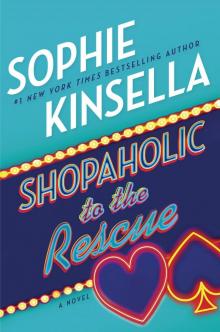 Shopaholic to the Rescue
Shopaholic to the Rescue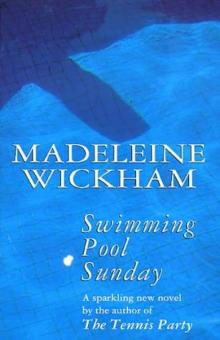 Swimming Pool Sunday
Swimming Pool Sunday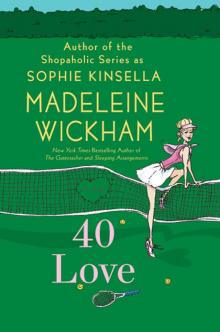 40 Love
40 Love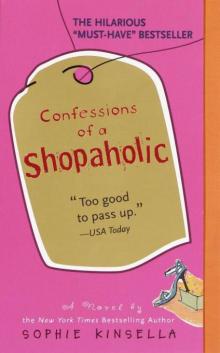 Confessions of a Shopaholic
Confessions of a Shopaholic Finding Audrey
Finding Audrey Sophie Kinsella's Shopaholic 5-Book Bundle
Sophie Kinsella's Shopaholic 5-Book Bundle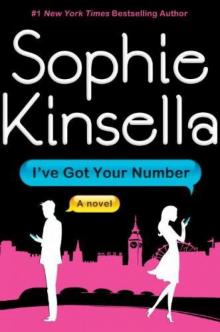 I've Got Your Number
I've Got Your Number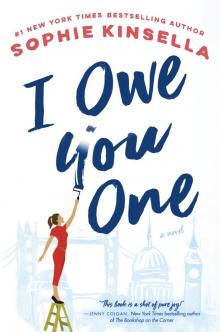 I Owe You One
I Owe You One Christmas Shopaholic
Christmas Shopaholic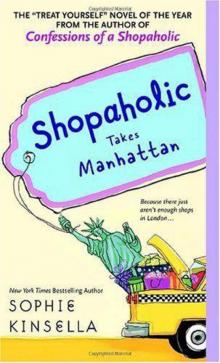 Shopaholic Takes Manhattan
Shopaholic Takes Manhattan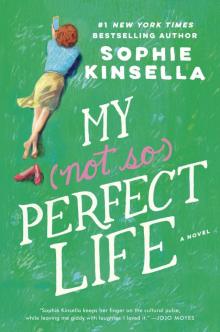 My Not So Perfect Life
My Not So Perfect Life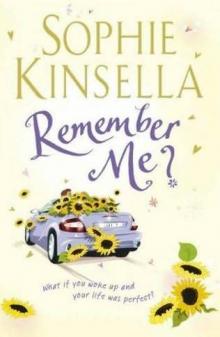 Remember Me?
Remember Me? The Tennis Party
The Tennis Party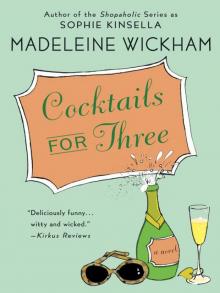 Cocktails for Three
Cocktails for Three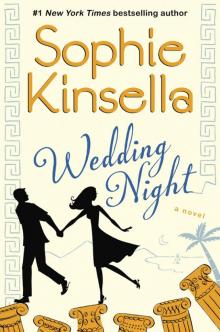 Wedding Night
Wedding Night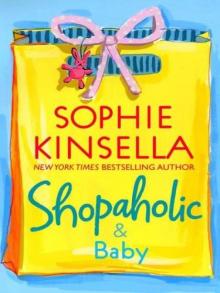 Shopaholic & Baby
Shopaholic & Baby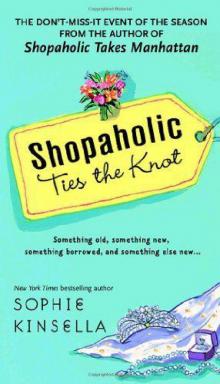 Shopaholic Ties the Knot
Shopaholic Ties the Knot Fairy Mom and Me #3
Fairy Mom and Me #3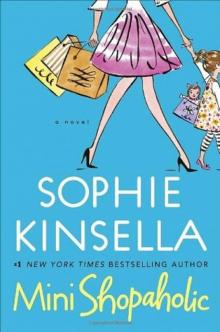 Mini Shopaholic
Mini Shopaholic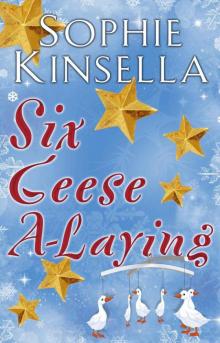 Six Geese A-Laying (Mini Christmas Short Story)
Six Geese A-Laying (Mini Christmas Short Story) Can You Keep a Secret?
Can You Keep a Secret? Love Your Life
Love Your Life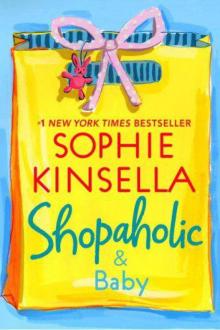 Shopaholic and Baby
Shopaholic and Baby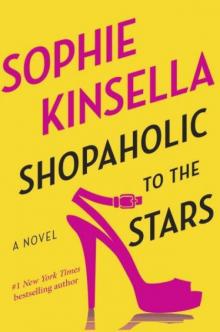 Shopaholic to the Stars
Shopaholic to the Stars Shopaholic and Sister
Shopaholic and Sister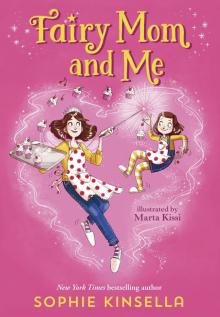 Fairy Mom and Me
Fairy Mom and Me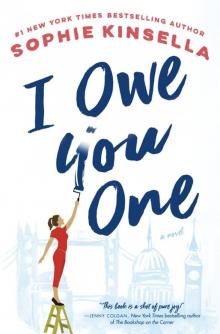 I Owe You One: A Novel
I Owe You One: A Novel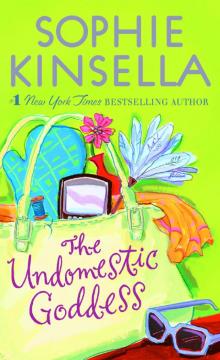 The Undomestic Goddess
The Undomestic Goddess The Secret Dreamworld of a Shopaholic:
The Secret Dreamworld of a Shopaholic: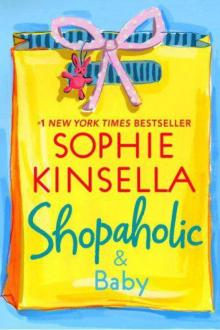 Shopaholic and Baby s-5
Shopaholic and Baby s-5 The Secret Dreamworld of a Shopaholic
The Secret Dreamworld of a Shopaholic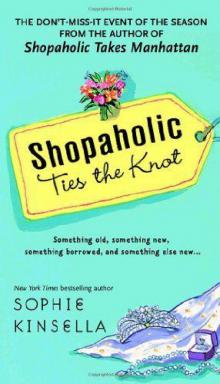 Shopaholic ties the knot s-3
Shopaholic ties the knot s-3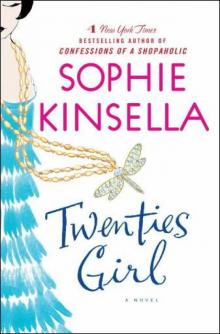 Twenties Girl
Twenties Girl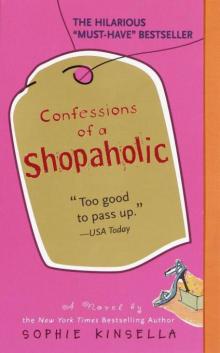 Confessions of a Shopaholic s-1
Confessions of a Shopaholic s-1 Shopaholic and sister s-4
Shopaholic and sister s-4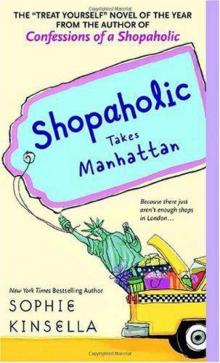 Shopaholic Takes Manhattan s-2
Shopaholic Takes Manhattan s-2